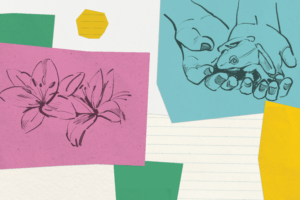
In early April, hundreds, potentially thousands, of international students in the United States suddenly and without warning had their student visas revoked by the Trump administration. Many have been detained and deported. On April 25, the administration abruptly reversed course, restoring many visas that had been purged from the federal database in recent weeks. However the Justice Department warned that there are more removals to come.
On March 27, U.S. Secretary of State Marco Rubio said that 300 students had their visas canceled. The real number is likely higher: Inside High Ed’s research shows that as of April 21, more than 1,500 students from around 250 universities have had a sudden or unexpected change in their visa status; the American Immigration Law Association estimates about 4,700 students have been impacted. All universities are at risk of seeing their international students lose their visas.
Rubio emphasized in his speech that once a student has their visa revoked, the government has the right to kick them out of the country.
SAIC has a higher percentage of international students than any other school in the Midwest. Thirty-one percent of SAIC’s student body is international students, which includes more than 1,000 students from 50 different countries. International students are granted the same First Amendment rights as citizens while they are studying in the U.S.
“I feel an underlying fear that any choice could be the wrong move that gets my student visa revoked. I have been actively careful for a while to avoid activities that could be seen as inflammatory. There is no reason this would happen to me, but that is what people say when it happens to them,” said Sisel Gelman (MFAW 2025), an international student and staff writer for F Newsmagazine.
As of April 25, no SAIC student has been confirmed to have lost their student visa, but the fear is real for many.
“To anyone familiar with history, you see these steps that America has been taking in the last few years, especially in the last few months, and it’s just undeniable what’s happening. But at the same time, it’s a reality that we don’t want to accept because this is the ‘land of the free,’” said Dylan Hembrough, the editor-in-chief of The Alestle at Southern Illinois University Edwardsville. At SIUE, three undergraduate students and six former graduate students have had their visas revoked.
The Trump administration has cited the Immigration and Nationality Act enacted in 1952 as justification for the deportations. It’s a law that has been amended many times, as it is the basis for many immigration laws. The Trump administration specifically uses Section 237 (a)(4)(C), which is rarely invoked.
White House press secretary Karoline Leavitt told reporters that under this law, “the Secretary of State has the right to revoke a green card or a visa for individuals who are adversarial to the foreign policy and national security interests.”
The Trump administration targeted individuals involved in pro-Palestinian protests, which it discerned at least in part by going through social media posts and articles in student papers. Students also lost their visa status over minor misdemeanors, including DUIs, and some were not given a reason at all.
Two of the most high-profile cases are Mahmoud Khalil, a Syrian graduate student at Columbia University, who was a prominent figure in pro-Palestinian protests in the Spring of 2024; and Rümeysa Öztürk, a Turkish doctoral candidate at Tufts, who co-authored an op-ed in her student newspaper calling on Tufts’ president to recognize genocide in Gaza and divest from Israeli corporations. Both Öztürk and Khalil were held in detention in Louisiana, and their cases are still being tried. Khalil is still in the Louisiana detention center, but Öztürk has been ordered by a judge to be moved from Louisiana to Vermont by May 1.
Regarding Khalil, Trump posted on Truth Social, “This is the first arrest of many to come. We know there are more students at Columbia and other Universities across the Country who have engaged in pro-terrorist, anti-Semitic, anti-American activity, and the Trump Administration will not tolerate it. Many are not students, they are paid agitators. We will find, apprehend, and deport these terrorist sympathizers from our country — never to return again.”
The backlash has been significant and has included many lawsuits. More than 100 students have joined a class action lawsuit filed by several American Civil Liberties Union affiliates. Additionally, students in New Hampshire, Wisconsin, and Montana have filed suits claiming denial of due process.
“This is the scariest time since after World War I. I think it’s worse than the McCarthy period from the point of what’s happening on campuses,” said Paul Elitzik, the former editorial adviser at F Newsmagazine and retired Adjunct Professor at SAIC.
Over 3,000 Jewish faculty, staff, students, and university community members have signed a letter “denouncing, without equivocation, anyone who invokes our name — and cynical claims of antisemitism — to harass, expel, arrest, or deport members of our campus communities.” Among the signatories are five SAIC community members, including Elitzik.
The U.S. Department of State posted on Facebook in March about the surveilling of visa holders: “U.S. visa screening does not stop after a visa is issued. We continuously check visa holders to ensure they follow all U.S. laws and immigration rules — and we will revoke their visas and deport them if they don’t.”
The Trump administration hoped to limit student activism on college campuses; it has also frozen federal grants for many universities, such as Harvard.
“I’ve been doing this work for about 35 years now. And never have we ever seen anything quite like this,” said Mike Hiestand, senior legal counsel for the Student Press Law Center.
After the April 25 reversal, Hiestand said he was relieved there was a pause; but he wasn’t sure what to make of it, or how long it would last.
“If it can be rescinded as it has been, it can be put back in place exactly in the same willy-nilly sort of fashion. I think that students right now need to remain on alert,” Hiestand said. “This reversal of a policy like this and the way that it’s been reversed is also something that we don’t typically see. So, yeah, no real change [to the student media alert]. Not yet, at least.”
Seven major organizations within student journalism, including the Associated College Press, the SPLC, and the College Media Association, released an unprecedented “Student Media Alert” on April 4 in large part because of Öztürk’s arrest. The alert urges student newspapers to review their takedown and anonymity polices, to be transparent with sources and audiences about anonymous bylines, and to educate their staff on the current risks international students are facing. Minimizing harm is emphasized throughout the alert.
“When you see a student who contributed to student media detained and whisked away on city streets like Öztürk was, it opens your eyes and it says, ‘The normal rules have changed, and we need to adapt,’” said Hiestand.
When speaking to F News, immigration attorney Toni Xu emphasized the importance of being careful about what you post and leave up on social media accounts. Xu is an attorney in California who came to the U.S. as an international student and now specializes in helping students navigate the visa process.
International students are also at risk of being denied re-entry if they leave the U.S. and try to return. Customs and Border Protection can search personal electronics, including phones and laptops, without a warrant. Several countries, including Germany, the United Kingdom, and China, have issued travel advisories for the U.S.
Lylee Gibbs, the editor-in-chief for The Daily Egyptian, Southern Illinois University Carbondale’s student paper, which also serves the wider Carbondale community, spoke about how much students want to hear from their school administration amid this crisis.
“Students just want to hear from the administration, and even just our chancellor, Austin Lane — him saying, ‘We’re here to support you,’ I think would make a difference,” said Gibbs. Thus far, SIUC has had two confirmed cases of students losing their visas.
“There’s so much fear and paranoia floating around right now, it’s hard to gauge the consequences of something as small as a story on Instagram. I’m very unsure of the future, jobs I had lined up are falling through,” said an SAIC graduate student who asked to stay anonymous for fear of deportation.
Jessica Wolfe, the director of the International Student Affairs office, sent an email to every current international student. The email included links to the Immigrant Legal Resource Center, ACLU, and AILA’s Immigration Lawyer Search.
“SAIC urges international students to carefully consider their travel plans. International Student Affairs is available to refer you to resources if you have questions or require assistance,” wrote Wolfe.
Wolfe’s email lists the documents that the International Student Affairs office urges international students to carry if they travel: a passport that will be valid at least six months into the future, an unexpired F-1 student visa, I-20 signed for travel within the past 12 months (six months if on Optional Practical Training), and a copy of a current and/or future SAIC schedule.
The International Student Affairs office also recommends carrying a sheet of paper with emergency contact information of friends and family, as well as the SAIC 24-hour security number (312-899-1230). They specify to have a printed copy of this, rather than a digital-only file.
They note that if you are on OPT or plan to be when you travel internationally, you should reach out to their office via email at least a week before you travel at iaffai@artic.edu.
When traveling domestically, the office recommends having a copy of your ID or passport as well as your I-94 record.
The email notes, “SAIC security will not voluntarily allow Immigration and Customs Enforcement to enter non-public areas of SAIC without a valid judicial warrant. Should ICE visit the SAIC campus, SAIC has security protocols in place.”







